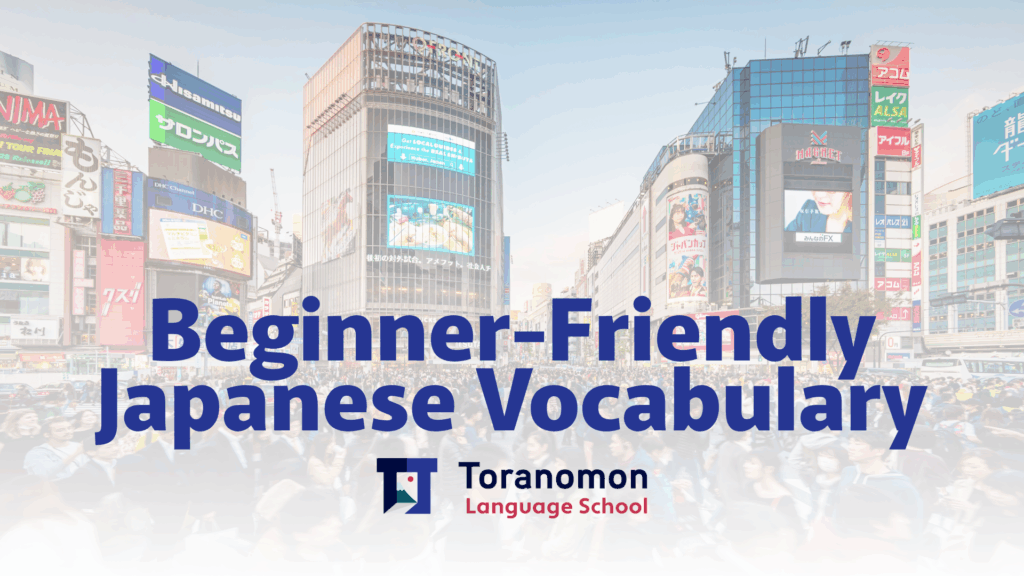New Year, New Voice:

🎍Unlock Real Connection with Our Free Group Trial Happy 2026! As the sunrise of the New Year bathes Toranomon in fresh light, there’s an undeniable buzz in the air. It’s the season of fresh starts and bold ambitions. You’ve conquered international markets and navigated Tokyo’s business world with excellence—but is there a small voice in your head saying, “This is the year I finally speak Japanese?” If you’ve ever felt like an observer during office banter or wished you could join the laughter at a team lunch, this is your sign. Don’t just work in Japan this year—thrive in it. 🤝The Goal: From “Polite Distance” to “True Rapport” We know […]
Step into a Uniquely Japanese Christmas

Introduction: The Christmas in Japan You Never Imagined In December, Japan’s streets glow with dazzling illuminations, festive window displays, and cheerful Christmas music, wrapping the entire city in a soft winter magic. Yet unlike the West, Christmas in Japan is not about family gatherings or religious rituals—it’s a celebration centered on couples’ dates, friends’ get-togethers, strawberry cakes, and fried chicken. Because of this unique cultural twist, our Japanese Christmas Event is designed to help you truly understand and experience Christmas the Japanese way. Spending Christmas in Japan: Where to Go Yokohama – For Christmas Markets & European Atmosphere: Yokohama is famous for its Christmas market and port-side illuminations. The German-style […]
English Summer Camp for Kids

Learning Through Fun, Exploration, and Real-Life Experiences Learning a new language is most effective when children feel excited, curious, and confident. That’s why our new Summer Program is designed to help young learners develop strong communication skills through reading, listening, speaking, writing, and immersive outdoor activities. This program combines structured learning with hands-on adventures, making English not just a subject—but a tool children can use to understand the world. Interactive Reading & Listening: Build Strong Foundations Children will explore age-appropriate stories, songs, and videos that spark imagination and improve comprehension. Through guided reading and listening activities, students naturally expand vocabulary, learn sentence patterns, and develop the ability to follow English […]
Life in Japan No Longer Chaotic

It’s not that you’re not trying — it’s just really hard at the beginning in Japan Many newcomers arrive in Japan believing basic English is enough—until everyday life suddenly becomes stressful. From convenience store checkouts to restaurant orders and train stations, language barriers turn simple moments into daily struggles. The Survival Kit Japanese Course was created for those who don’t need fluency yet—just the confidence to get through daily life. The Top 3 Situations That Trip Up Newcomers in Japan Newcomers to Japan most often get stuck in three key situations: shopping and checkout, ordering at restaurants, and asking for directions on public transportation. Not understanding prices or payment methods, […]
Why Learning Japanese in a Group Is Effective!

When you start learning Japanese, one of the most important decisions you’ll make is how you study. Apps, textbooks, and self-paced online lessons all have their place—but if your goal is to build real communication skills, confidence, and momentum, a structured group learning environment offers advantages that solo study simply can’t match. Whether you’re living in Japan, planning a future move, or looking to upgrade your career prospects, joining a Japanese group course can accelerate your progress in meaningful ways. Here’s why: 1. You Practice Real Conversation From Day One Language is meant to be used, not memorized. In a group course, you’re constantly exposed to natural speech patterns, different […]
Survival Japanese: Trial Lesson for ¥2,000

The first month of living in Japan is often described as magical, disorienting, and overwhelming—all at once. You’re surrounded by a new culture, a new language, and an entirely different rhythm of daily life. Suddenly, even simple tasks like buying toothpaste, ordering lunch, or figuring out the right train transfer become small challenges. Without the language, everyday life can quickly become a cycle of quiet frustrations. You arrive, receive your residence card, and maybe you’ve memorized a few greetings. But real life begins immediately. You’re handed a form at the ward office—with no English support. A cashier asks you something you weren’t prepared for. You order food without knowing what’s […]
Surviving Your First Japanese Company Event: What to Expect and How to Speak

Company events—whether it’s a nomikai (drinking party), kōryūkai (networking event), or a seasonal celebration—are an important part of professional culture in Japan. For many foreign professionals, these events can feel unfamiliar or stressful, especially when navigating subtle expectations and polite language. Fortunately, with the right preparation and key Japanese phrases, you can participate confidently and make a great impression. This guide will help you understand what typically happens at a Japanese company event, what behaviors are expected, and the useful expressions you can use to communicate naturally and respectfully. 1. What You Can Expect at a Japanese Company Event A structured yet relaxed atmosphere Even casual Japanese company events have […]
Beginner-Friendly Japanese Vocabulary to Survive Your First Year in Japan

Moving to Japan is exciting, but it can also be overwhelming—especially when it comes to language. Even if you’ve studied Japanese before arriving, you may struggle in everyday situations like commuting, shopping, dining, and interacting with colleagues. Learning essential words and phrases can help you navigate daily life confidently. Here’s an extensive list to get you started. 1. Transportation & Commuting 2. Shopping & Daily Essentials 3. Dining & Food 4. Housing & Daily Life 5. Work & Office 6. Social & Daily Interactions 7. Numbers, Time, & Dates 8. Emergency & Safety Mastering these essential words will help you navigate your first year in Japan with confidence, independence, and […]
Mastering Japanese Business Emails: Key Phrases Every Professional Should Know

For many foreign professionals working in Japan, one of the biggest challenges isn’t meetings, presentations, or small talk—it’s writing Japanese business emails. Even if you can speak conversational Japanese, business writing often feels like a completely different language: formal, indirect, structured, and full of set expressions that are rarely taught in textbooks. But once you understand the patterns, Japanese emails become predictable, clear, and easier to master. This guide covers the essential structure, the must-know phrases, and the professional writing habits you’ll need to communicate confidently in any Japanese workplace. 📩 1. Understanding the Japanese Email Structure Unlike English emails—which allow for a flexible structure—Japanese business emails follow a well-established […]
Savoring Autumn in Japan: A Guide to Seasonal Foods

Autumn in Japan isn’t just about colorful leaves—it’s also a season full of delicious, culturally significant foods. From matsutake mushrooms to nabe (hot pot) dishes, these seasonal specialties offer a taste of Japanese life and traditions, connecting residents to both nature and culture. Matsutake Mushrooms (松茸) – These rare, aromatic mushrooms are prized in Japanese cuisine and symbolize luxury and hospitality. Often served in rice dishes or soups, matsutake are a seasonal delicacy that marks the arrival of autumn and is traditionally given as a gift to express gratitude. Persimmons (柿) – Persimmons are a staple of the season and come in both fresh and dried (干し柿) forms. In Japanese […]
